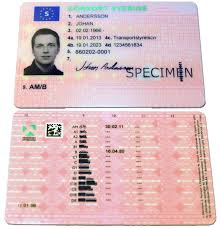
29
ഏപ്രിൽThe Most Prevalent Issues In Driver's License Without Test
Driver's License Without Test: A Controversial Issue
In lots of parts of the world, getting a driver's license includes a rigorous procedure, including composed tests, practical roadway tests, and often even vision assessments. The purpose of these tests is clear: to ensure that individuals are not only conscious of the rules of the road but likewise efficient in operating a lorry safely. However, a growing trend in some regions has emerged-- issuing driver's licenses without a standard testing procedure. This questionable approach has actually stimulated arguments about security, ease of access, and the integrity of licensing systems.
 The Growing Trend
The Growing Trend
The idea of providing driver's licenses without going through the typical testing procedures is typically warranted by numerous arguments. In some circumstances, states or countries have embraced this policy as a method to accommodate candidates who may have had prior driving experience however do not have the essential documentation to prove it. This often applies to immigrant populations who, in spite of being experienced chauffeurs in their home countries, might struggle to pass regional tests written in a foreign language.
Supporters argue that this practice can increase mobility for numerous people, supplying them with greater access to work opportunities, education, and vital services. It can also eliminate blockage in testing centers, enhancing wait times for those who do still require to take tests.
Arguments For and Against
Pros:
Increased Accessibility: By eliminating barriers such as language requirements or complicated testing treatments, more individuals can acquire a license and add to society.
Experience Recognition: Many individuals have practical driving experience however lack official accreditation. A system that acknowledges previous experience could possibly create more secure chauffeurs on the roadway.
Economic Benefits: Improved access to a driver's license can lead to increased economic participation, specifically for low-income individuals who count on cars and trucks to commute to work.
Cons:
Security Concerns: The most considerable argument versus issuing licenses without tests is the possible threat to public security. Without correct evaluation, unqualified motorists might endanger themselves and others on the road.
Devaluation of the License: Allowing individuals to drive without passing a test can weaken the perceived worth and significance of having a driver's license, potentially resulting in lax attitudes towards driving requirements.
Liability Issues: In the occasion of a mishap including an untested driver, questions of liability might emerge, making complex insurance coverage processes and legal responsibilities.
Case Studies
Some areas that have actually carried out policies permitting licenses without standard testing have actually seen combined results. For example, c körkort snabbtkörkort online legitkörkort på kort tid online PåLitligt (Posteezy.Com) in California, the Department of Motor Vehicles (DMV) permits undocumented immigrants to obtain a driver's license without an official driving test if they can demonstrate roadway knowledge. Proponents of this policy have actually highlighted increased roadway safety due to better-licensed motorists. Nevertheless, critics remain concerned about the capacity for unqualified individuals to operate cars, requiring reforms in the licensing procedure to keep safety requirements.
Likewise, nations like Germany have programs to examine previous driving experience for immigrants, but they still require practical tests in specific phased programs to make sure safety on public roadways.
Future Outlook
As society comes to grips with the balance between ease of access and public security, the argument surrounding driver's licenses without tests is likely to continue. Policymakers will require to consider ingenious options that guarantee individuals can get to needed driving privileges while also preserving public security standards.
Choices such as phased licensing programs, boosted driver education, or increased use of simulators might work as bridges in between strict testing and greater accessibility. Ultimately, the goal ought to be a balanced technique that respects the rights of people looking for mobility while dedicating to the security of all road users.
 In conclusion, the concern of approving driver's licenses without traditional tests is intricate and diverse. It needs cautious factor to consider, respect for human rights, and an undeviating dedication to public safety. As the conversation continues, it will be essential for all stakeholders to remain taken part in conversations that are both constructive and forward-thinking, ensuring that the roadway ahead is safe for everyone.
In conclusion, the concern of approving driver's licenses without traditional tests is intricate and diverse. It needs cautious factor to consider, respect for human rights, and an undeviating dedication to public safety. As the conversation continues, it will be essential for all stakeholders to remain taken part in conversations that are both constructive and forward-thinking, ensuring that the roadway ahead is safe for everyone.


Reviews